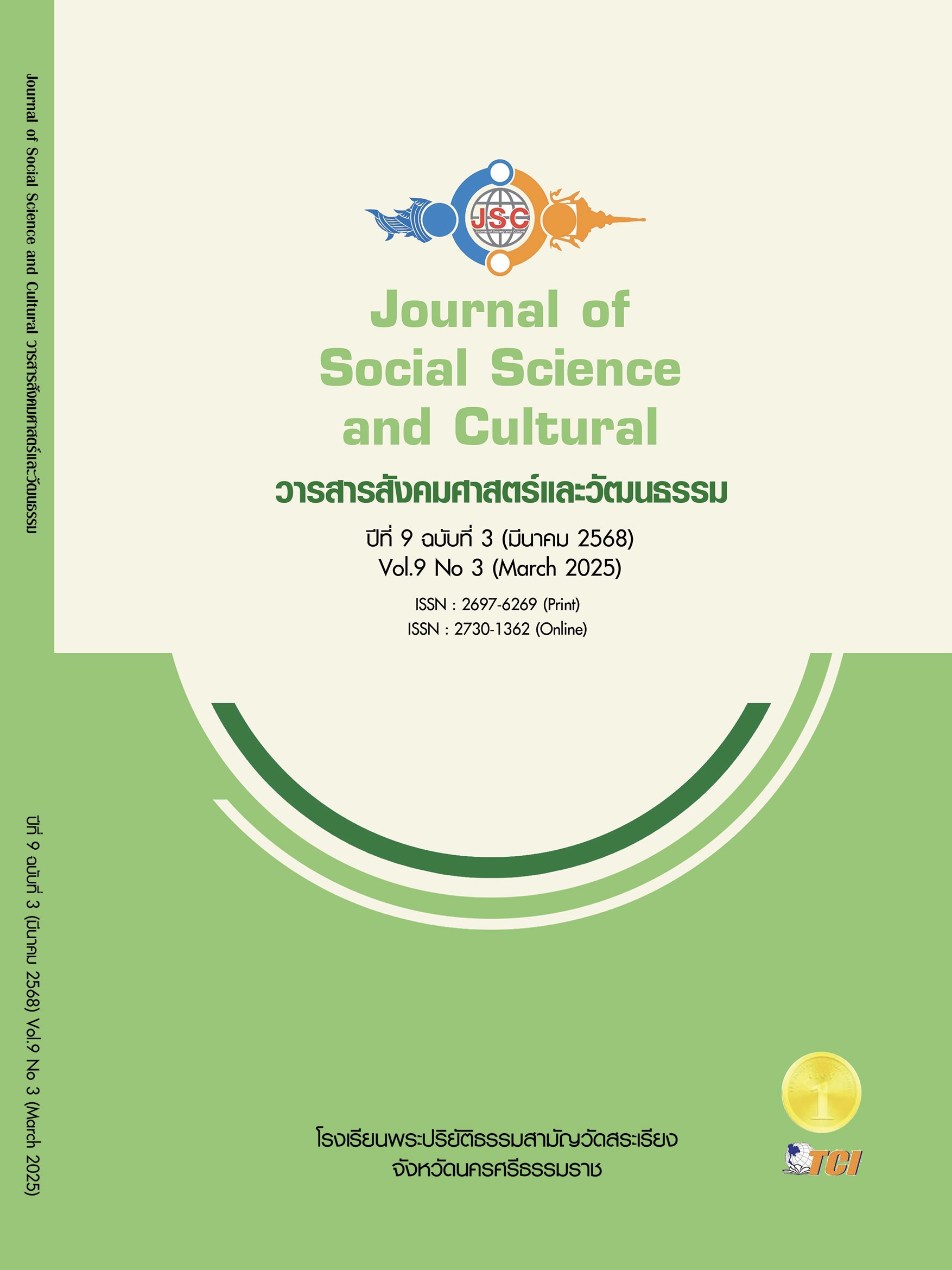THE MODEL OF THE DEVELOPMENT INNOVATIVE LEADERSHIP SKILLS OF THE BASIC EDUCATION SCHOOL ADMINISTRATORS IN PHRAE PROVINCE
Main Article Content
Abstract
This study employed a mixed-methods research approach with 4 objectives and was conducted in 4 phases: 1) Synthesizing components and related factors from 30 sources and conducting structured interviews with 7 key informants. The findings were validated through a focus group discussion with 5 experts. 2) Investigating the current state and issues by surveying 346 participants and exploring development approaches through a focus group discussion with 25 key informants. 3) Developing a model through a participatory workshop with 6 relevant stakeholders. and 4) Validating the model's accuracy and suitability through expert interviews with 9 specialists and assessing feasibility and benefits with 30 stakeholders. The findings revealed that: 1) The leadership components comprised 6 key elements: 1.1) creative thinking, 1.2) strategic thinking,
1.3) networking, 1.4) knowledge application, 1.5) innovative personality, and 1.6) planning and risk assessment. Internal factors included 5 aspects: 1) vision and leadership, 2) organizational culture, 3) personnel morale, 4) management structure, and 5) resources. External factors consisted of
4 aspects: 1) promotion, support, and motivation, 2) network partnerships, 3) policies of the affiliated organization, and 4) social context. 2) The overall current state of leadership skills was at a high level, while problems were minimal. The internal and external factors were also at a high level, with issues being minor. 3) The developed model consisted of 6 key components. and 4) The model demonstrated accuracy, suitability, high feasibility, and the highest level of usefulness.
Article Details
References
กุลชลี จงเจริญ. (2564). ชุดวิชา 23728 นวัตกรรมการบริหารการศึกษาและภาวะผู้นำ หน่วยที่ 12 ภาวะผู้นำเชิงนวัตกรรม. กรุงเทพมหานคร: มหาวิทยาลัยสุโขทัยธรรมาธิราช.
เดชา ลุนาวงค์. (2564). โมเดลความสัมพันธ์เชิงสาเหตุของปัจจัยที่ส่งผลต่อภาวะผู้นำเชิงนวัตกรรมของผู้บริหารสถานศึกษา สังกัดสำนักงานเขตพื้นที่การศึกษาประถมศึกษาในภาคตะวันออกเฉียงเหนือ. ใน วิทยานิพนธ์ดุษฎีบัณฑิต สาขาการบริหารการศึกษา. มหาวิทยาลัยราชภัฏสกลนคร.
บุญชม ศรีสะอาด. (2560). การวิจัยเบื้องต้น. (พิมพ์ครั้งที่ 10). กรุงเทพมหานคร: สุริยาสาส์น.
สมาน อัศวภูมิ. (2557). การบริหารสถานศึกษาตามแนวการปฏิรูปการศึกษายุคใหม่. (ฉบับปรับปรุง). กรุงเทพมหานคร: อุบลกิจ ออฟเซท การพิมพ์.
สำนักงานคณะกรรมการข้าราชการครูและบุคลากรทางการศึกษา. (2567). มาตรฐานตำแหน่งและมาตรฐานวิทยฐานะของข้าราชการครูและบุคลากรทางการศึกษา. กรุงเทพมหานคร: สำนักงานปลัดกระทรวงศึกษาธิการ.
สำนักงานศึกษาธิการจังหวัดแพร่. (2566). แผนพัฒนาการศึกษาจังหวัดแพร่ พ.ศ. 2566 - 2570. แพร่: สำนักงานศึกษาธิการจังหวัดแพร่.
สุกัญญา แช่มช้อย. (2562). การบริหารสถานศึกษาในยุคดิจิทัล. (พิมพ์ครั้งที่ 2). กรุงเทพมหานคร: จุฬาลงกรณ์มหาวิทยาลัย.
สุกัญญา แช่มช้อย. (2565). การบริหารสถานศึกษาเพื่อสร้างนวัตกรรุ่นเยาว์. (พิมพ์ครั้งที่ 1). กรุงเทพมหานคร: จุฬาลงกรณ์มหาวิทยาลัย.
Cascio, J. (2020). Facing the age of chaos. Retrieved April 23, 2024, from https://medium.com/@cascio/the-bani-election-01fd3bd3219c
Krejcie, R. V. & Morgan, D. W. (1970). Determining Sample Size for Research Activities. Educational and Psychological Measurement, 30(3), 607-610.
Scott, D. A. (2012). The little black book of innovation. Bangkok: Expernet Co., Ltd.


